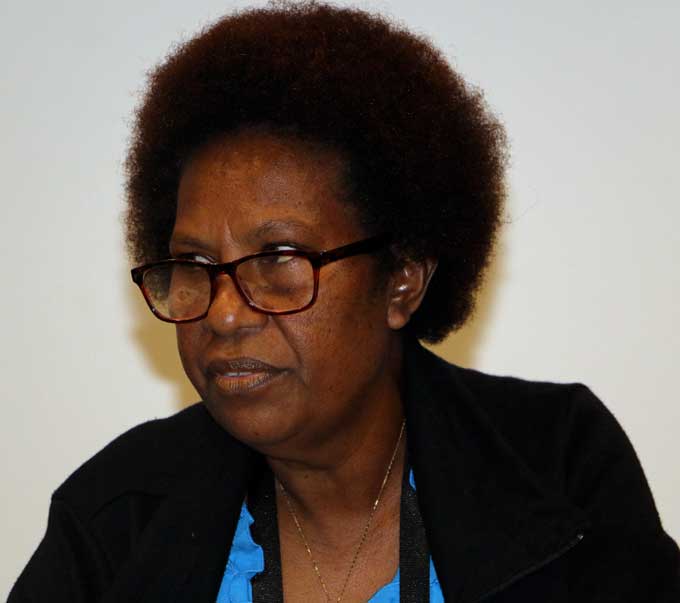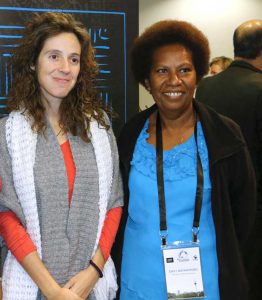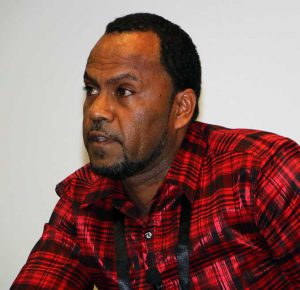
By Husain Malvi
 Journalism education is challenged by issues in all regions of the world and the South Pacific is no different. At the 4th World Journalism Education Congress (WJEC), held at the Auckland University of Technology this week, four educators from different countries in the Pacific put forward their issues and challenges.
Journalism education is challenged by issues in all regions of the world and the South Pacific is no different. At the 4th World Journalism Education Congress (WJEC), held at the Auckland University of Technology this week, four educators from different countries in the Pacific put forward their issues and challenges.
To set the tone for the session, panel chair Professor David Robie, director of the Pacific Media Centre, showed a “citizen media” video clip of police opening fire on students at the University of Papua New Guinea last month, wounding at least 23.
PNG: Traumatised
Emily Matasororo, journalism and public relations strand leader at the University of Papua New Guinea (UPNG) gave some insights into the incident.
She said the majority of students in UPNG come from rural backgrounds and are trying to get into tertiary education to support their families, tribes and communities in search of a better life.
“I was there among the students when the police opened fire and I was really traumatised by that,” Matasororo said.
The students had burnt newspapers in front of the campus gate because they thought the media was taking sides and promoting the government’s agenda.
Matasororo said one of the student leaders told her that they had seen newspaper reports and found them “shallow and biased”.
“For me that was a very strong statement coming from a student leader,” Matasororo said.

Fiji: Home grown media
Dr Shailendra Singh, head of journalism at the University of South Pacific (USP), highlighted the lack of journalism training in the region, saying the situation was “critical”.
He said the Pacific faced major threats like climate change, overfishing and corruption on a grand scale.
“There is lack of support throughout the region for journalism education and for tertiary teaching in journalism,” Dr Singh said.
Dr Singh expressed his concern over the many expatriates that are teaching journalism in the Pacific.
“[It’s important to have] home grown media educators who understand the terrain and also have a stake in it.”
Giving advice to journalism lecturers, he said: “Educators should take up research topics for the sake of their own intellectual and professional development and enhance teaching through their research.
“USP is encouraging a lot of research, including with cash incentives and opportunities to attend conferences if you publish material.
“Cross-discipline research with people of other universities can also work wonders,” he said.
Samoa: Bridge the gap
Misa Vicky Lepou, head of journalism at the National University of Samoa (NUS), said answers were needed to “bridge the gap” between the media industry and journalism education.
“Another important requirement is building trust between the media and the community. I wonder if the community respects media as a honourable profession?” she asked the audience.
According to Misa, Samoan media outlets need a lot of training in ethics.
Vanuatu: Work in progress
Charlie David Mandavah, course coordinator of journalism at the Vanuatu Institute of Technology (VIT), said although the success rate of the course was high, the school lacked qualified trainers.

“There is a success rate of 60 percent of students finding jobs in the media industry.
But we haven’t been able to find qualified trainers or journalists to take up the role of teaching and the evolution of the course remains a work in progress.”
Other issues Mandavah highlighted was the “fraught” relationship between the media and the government in Vanuatu, computer illiteracy which leaves students unprepared for the real world, and the “subdued” role of females, meaning they often lacked confidence to ask the hard questions.














































